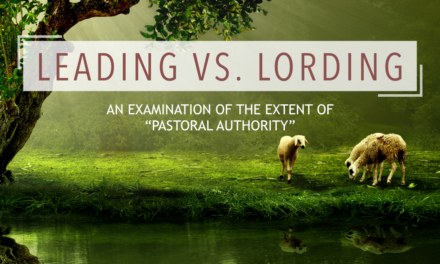Years ago I witnessed a moving of the Spirit in a church gathering that spontaneously brought many to cry out to the Lord—both men and women. As glorious as the experience was, people have wondered whether women are biblically permitted to pray in public prayer meetings. Does the Bible address the matter? The answer is yes.
Instructional Passages
Ephesians 1:1-3 speaks of “saints” in the “heavenly places.” This expression refers to the spiritual realm (Eph. 1:20-21; cf. Eph. 6:12). In that realm, saints are “in Christ” which is a part of the spiritual realm, far above the enemy (Eph. 2:6; cf. Eph. 1:21).
Galatians 3:26-27 clarifies that “in Christ” (in the spiritual realm) “there is neither male nor female.” The inspired Word provides this explicit emphasis. Prayer in the Spirit is in this spiritual realm. Therefore, we may safely conclude in the realm of true prayer, any saint may participate and gender is not an issue.
First Corinthians 11 addresses women praying in the assembly. The same passage addresses the Lord’s Supper which we know is a public assembly matter. Regardless of how the issue of head covering is dealt with, what is undebatable in the passage is that women prayed in the public assembly (1 Cor. 11:5).
Narrative Passages
Acts 1:14 recounts a public prayer meeting and specifically states it was “with the women.” The inspired narrative inserts this explicit detail for a reason.
Acts 12 recounts the “church” meeting to pray for Peter who had been imprisoned, and the text mentions two women, Mary and Rhoda (Acts 12:5, 12-13). The implication is both men and women were involved in the prayer meeting.
What About…?
But 1 Corinthians 14:34 says, “Let your women keep silence in the churches: for it is not permitted unto them to speak; but they are commanded to be under obedience, as also saith the law.” Does this negate the argument built on the previously cited passages? It is important to note that the context involves speaking out in public services—not prayer. Whatever it means, it cannot annul what is clearly stated in chapter 11 of the same book. Also, keep in mind that real prayer is not instructing; it is asking.
And what about 2 Timothy 2:11-12, “Let the woman learn in silence with all subjection. But I suffer not a woman to teach, nor to usurp authority over the man, but to be in silence”? Here, the issue of silence is linked to a usurpation of authority over a man. It does not refer to public prayer meetings or even to appropriate teaching (cf. Acts 18:26 where Aquila and Priscilla instruct Apollos).
Personally, I have often observed God using women in a public prayer meeting to bring genuineness to the meeting. Ladies tend to be humble sooner. God always blesses humility.

John Van Gelderen
Post Author












REMEMBER IT’S THE WOMEN THAT MADE YOU GUYS WHAT YOU ARE TODAY.FUNDAMENTALISM IS ALL ABOUT THE MEN.WHAT ABOUT THE WOMEN IN CHRISTIAN FUNDAMENTALISM?THERE SHOULD BE A HALL OF FAME FOR THEM. THEY NEED SOME SERIOUS RECOGNITION AND BROUGHT TO THE FORE FRONT.DEAL OR NO DEAL!WHO SHOULD BE THE 1ST LADY OF FUNDAMENTALISM?YOU DECIDE,JOHN.